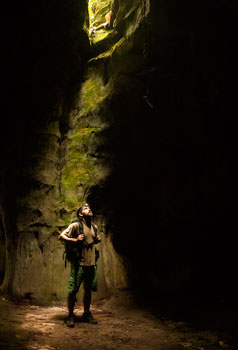
I completed my PhD at the University of Lisbon in 2018. During my doctorate I studied the effects of Amazonian rainforest fragmentation on tropical bats using autonomous ultrasound detectors. I have been lately been focused on the ‘soundscape’ exploration (the landscape of sounds that exist in nature) in order to promote sustainable land use. Nonetheless, my main area of interest has always been bat ecology and conservation worldwide, particularly with the most severely threatened species and habitats.
I started working with bats at the Natural Science Museum of Granollers (Catalonia) in 2005, where I met my first mentors, who rapidly introduced me to the intimate secrets of the bat world. Since then, I have collaborated on numerous international bat conservation projects shaping my scientific knowledge and background. As a bat researcher, I have always been determined to find applied, clear solutions to the current threats that bats are seriously facing all over the world. After 5 years of bat research in Europe, in 2010, I concluded my BSc with a final project on bats in Colombia, my first contact with Neotropical species. Afterwards, I jumped to Sydney (Australia) to carry out my MSc thesis studying competitive behavior between flying foxes. And more recently, I have also joined quite a few bat-related expeditions in North Africa, Kenya and Madagascar, where I have finally become a National Geographic Explorer.
As a National Geographic Explorer I am establishing a new project based in Madagascar, one of the poorest countries in the world, totally dependent of subsistence rice agriculture, with big problems of harvest loss, and heavily threatened endemic bat populations due to the vast deforestation. Because bats are known to be excellent pest controllers, together with my team will work to assess the effectiveness of bats as pest suppressors in rural areas using bat boxes and field experiments while promoting bat conservation amongst local villagers and farmers.
In parallel I am coordinating parts of the Bat Monitoring Program in Catalonia, led by the Natural Science Museum of Granollers, in order to gather data about bat population trends through the use of citizen science. All the information can be found here: www.batmonitoring.org
